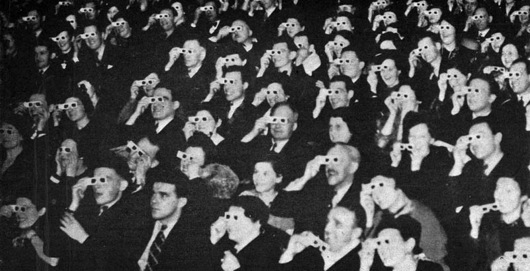
Community
When thinking about community in theoretical terms, it is easy to get caught up in perfect versions of what it means. But Communities are made up of people, and relationships between people are often messy and complex. If we look at the concept of community academically, we can afford the luxury of being rational, whereas with the reality of community in practice, once emotion is introduced, we also get much entropy along with it.
Braxler and Winet quote Miranda Joseph as she writes that in terms of community, “ the term at best as “nearly meaningless” in its overuse and at worst as a tool of manipulative persuasion in its empty signification of “a sense of belonging, understanding, caring, cooperation, equality.” I am inclined to agree with Joseph, in that community does not necessarily denote a common purpose anymore. Instead it seems to be more about people with, at least, a passing interest in a given topic. However, one’s interactions within the community are not always necessarily in the best interests of furthering the knowledge in the community, often ending up with people looking to serve their own interests.
Communities could be said to be entered around interests and values, especially in a digital context. Issues often arise when values and intentionality begin to diverge. This is compounded when the anonymity of the digital realm makes online communities even more apt to discord, given that there are no strength of ties amongst its members from the proximity of presence.
It does seem that in more specialized communities such as academia, concepts like collaboration are more easily implemented because the membership is more invested in the success of the community, given its enabling function to the individuals accessing it, as demonstrated in the Grinnell Beowulf example.
Perhaps the biggest takeaway from Community is the fact that as contributors and consumers of its content, we must be aware of a certain level of responsibility for our actions within them, even if in the digital context, we may never have to actually come face to face with other members of these communities.
Crowdmilking
Did something happen to make the 40 hour work week that we worked so hard to get legislated, suddenly not enough? This is something that was brought up by Scholz in “Crowdmiliking”. How has the Crowdsourcing economy become so popular? Perhaps its popularity is due to some different cause that may likely have more to do with the disenfranchised working masses not feeling that having a 40-hour work week and benefits was enough. Then again, as a colleague commented, perhaps it is because people feel they need to do more to differentiate themselves.
Whatever the case, it seems that many people seem to be taking on work as a form of subsidized play, and when I say subsidized, I don’t always mean monetarily; sometimes the payoff comes in a form of social capital through association. Scholz brings up Julian Kuecklich’s term Playbor as a clever mashup that perhaps conveys the underlying discontent with the types of labour available. Is there a disconnect between what the economy focuses on for production and what an increasing number of playborers want to produce? And is this reflexive of what people want to consume, especially in an economy that is increasingly geared towards individualization and customization?
The milking of crowds may also be detremental to certain industries, especially when we talk about the crowdsourcing of content for different areas, such as editorial content. A similar thing happened with stock photography, in that 30 years ago, a single photo used to be licensed for thousands of dollars, while now, because of subscription models, you can get the same photo for pennies. So, is this a kind of natural adjustment in the markets, in which the models of marketing content have not yet caught up with the realities of production? I.e. if my iPhone today can take better photos than a digital camera from 3 years ago, how much am I going to value a image taken by someone else, especially a professional photographer?
There are other complexities to consider as well. As more and more people join the crowdsourced workforce, economics kicks in. In other words, if the supply of workers is higher than the demand, then the equilibrium price for a unit of time or unit of work will keep lowering, especially as more supply of workers enters the market. Although I am completely on board with the moral argument against this, as long as we keep feeding the supply side of the equation, the wages will not increase.